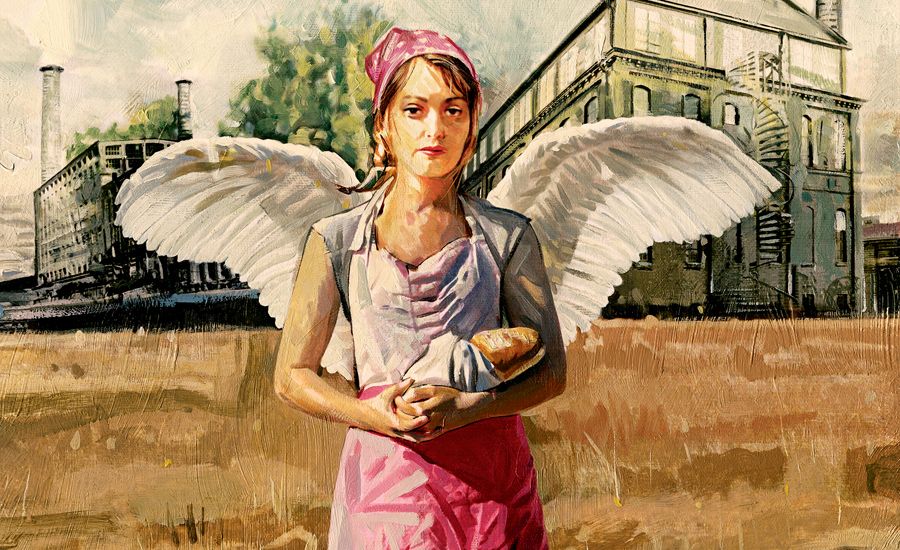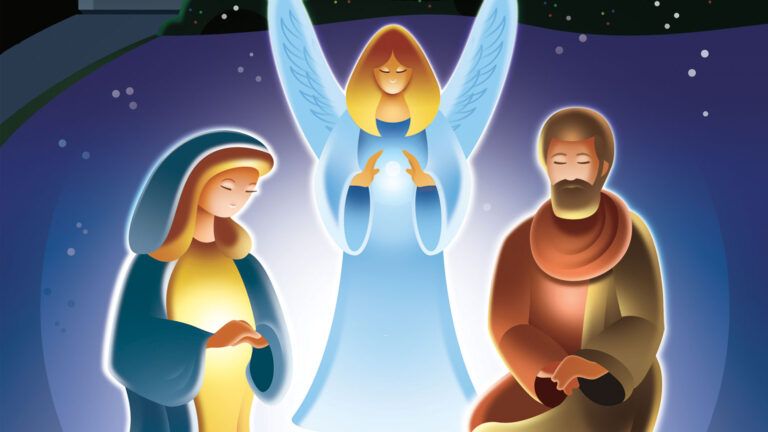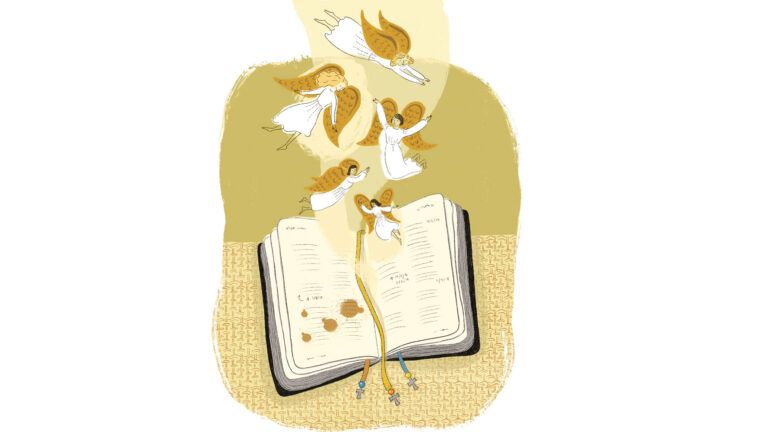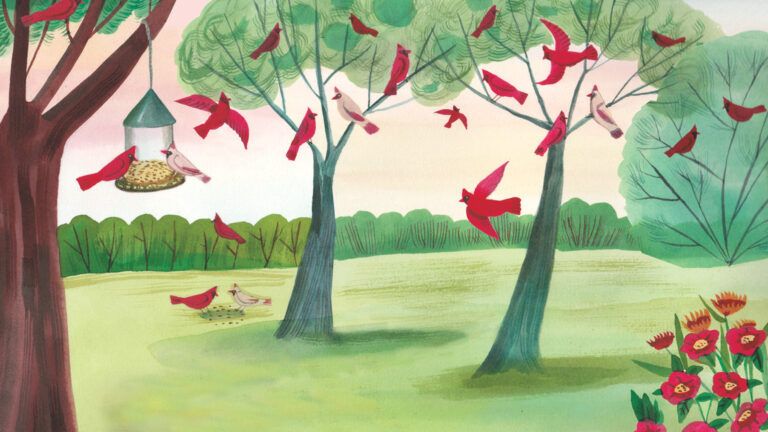A hard, angry pounding came at the front door. I crawled underneath the bed and nestled into the space between the floor and the mattress. I curled up into a ball, trying to make myself disappear. My mother had hidden herself in a kitchen cupboard.
It was June 1945, and I was 17 years old—too young to fully understand what was happening around me in Berlin, the city I’d grown up in. The war had ended a month earlier. Mutti, my mother, told me that life would go back to normal soon. Papa would come home any day now. We’d have more to eat.
But I’d heard other rumors. Stories of Russian soldiers hurting people. I was terrified that any moment now, a soldier would march into my room.
The banging at the front door grew louder. I held my breath. The knocking stopped. Maybe whoever it was would give up and go away…
The door burst open. Loud footsteps filled the apartment. I peered out from underneath the bed and saw two pairs of boots. Soldiers! The men paced back and forth in the living room, calling out to each other in harsh, angry tones, and worse, in a language I couldn’t understand.
I pressed my body closer to the wall, as far under the bed as I could get, and prayed as Mutti had taught me.
One man paused, his dirty black boots so close I could have reached out and touched them. After what felt like an eternity, the soldier turned and walked away. He and his comrade left out the front door, just as freely as they had come. I was safe. For now.
“Mutti!” I called, wiggling out from under the bed. I ran into the kitchen. Mutti emerged from her hiding place.
“Don’t worry, baby,” she said, wrapping me in a bear hug. “Everything is going to be all right.”
It was the fifth time soldiers had entered our house in less than a month. How much longer could we survive like this? Alone. For over a year we’d waited for Papa to come back to us. Would he ever return?
Our lives had been so simple before the war. Papa was a professional organist and owned the apartment building we lived in. I grew up a savvy city girl and loved riding my bike around the neighborhood and visiting my girlfriends from school.
But the war changed all that. Toward the end of 1944, Papa devised a plan to get us out of the country. He took a train to northern Germany to scope things out. We were to join him once he was settled. We didn’t know how soon the Russians would arrive, trapping me and Mutti in Berlin.
In the kitchen, Mutti and I comforted each other. We talked about the good times we would have when we were reunited with Papa. “Everything will be better once we’re together again,” Mutti assured me. “Things will get back to normal. Like they were before the war.”
Before the war. That time seemed almost like a fairy tale. These days the streets of Berlin were mayhem: Stores were raided. Women were abused. Children were terrified. We were all hungry. Try to leave the city? Mutti and I were afraid to leave the house. Trying to find Papa up north would be impossible.
The first time the soldiers broke in, they plowed through everything, overturning tables and chairs. They rifled through Mutti’s jewelry box and china cabinet. What they didn’t steal, they broke on the floor. What little food we had left, they took.
The raids and the chaos were scary, but the hunger was worse.
“Papa will be back soon. We just have to hold out for a little longer,” Mutti repeated, patting my head. “Until then, God and his angels will protect us.” I worried we couldn’t hold out long enough. Sometimes I imagined Papa finally coming home, only to find it was too late.
The next day I woke up, still shaken from the raid. My stomach grumbled, but it was too risky to sneak outside to forage for food today. Die on the street or starve to death in here, I thought miserably.
I heard a knock at the front door. Soldiers? Again? But this knock was softer. Much softer. I tiptoed to the door, put my eye against the peephole and looked out. No one there. Mutti stood beside me.
I opened the door and looked out into the hallway. A young woman stood there, holding a loaf of bread in her hands. Its heavenly aroma wafted up to my nostrils.
“I know you’re hungry,” she said. “Take this and eat.”
I took the loaf. It was small but hefty, warming my hands. “Where are you from?” I asked. I had never seen her before. Not in the building or neighborhood. Why was she sharing this priceless gift with us?
“I live nearby,” she said. She told us the name of her street. I turned to put the bread on the table. When I looked back, she was gone.
Mutti and I were too hungry to wonder what had just happened. We devoured a big hunk of the dense white bread and shared some with our neighbors.
But the next day, curiosity overcame us. We waited for a busy hour, when Mutti thought it would be safe, and walked to the street the woman had mentioned. As we came to it, we found nothing but an abandoned area. No houses anywhere in sight.
We ate from that loaf of bread for a week, far longer than I would have thought it would last. My Berliner angel had restored my hope. Mutti and I could manage to hold out just a little longer.
Soon the border opened and civilians were finally allowed to go in and out of Berlin. Mutti and I heard a car pull up and park right in front of our building. We looked out the window—Papa had come home! Just like Mutti promised. He was overjoyed to see us.
Not only were we together again, but Papa had filled the car with canned goods and wheels of cheese. He had a new plan for our family, and our lives were on the way back to normal.
Download your FREE ebook, Angel Sightings: 7 Inspirational Stories About Heavenly Angels and Everyday Angels on Earth.






